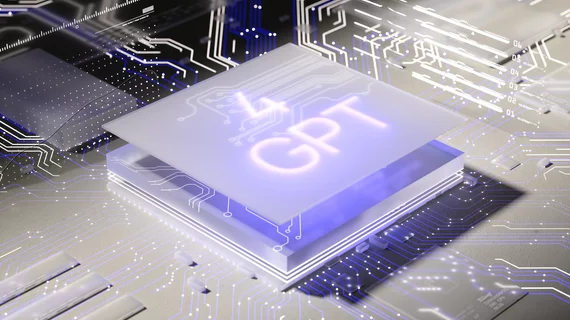Industry Watcher’s Digest
Buzzworthy developments of the past few days.
- The doctor doesn’t always know best. And neither will the AI. So warns a writer at MIT Technology Review after reading a journal paper on the risks of “algorithmic paternalism.” The key danger? “Doctors may be inclined to trust AI at the expense of a patient’s own lived experiences—as well as their own clinical judgment.” MIT article here, journal paper here.
- Here’s one answer to mental healthcare staffing shortages. Eleos Health of Boston is introducing a web-based, AI-aided application aimed at behavioral healthcare workers who travel to treat clients. The company says the software helps these often-harried workers spend less time on unbillable administrative tasks and more time on clinical care.
- What next with ChatGPT? Electronic dreams? An academic physician is wondering out loud whether a future iteration of generative AI will develop subconscious cognition on top of a will of its own. While acknowledging the outlandishness of the notion, the medical scholar observes: “[I]t is nonetheless remarkable that discussions in these directions are currently unfolding, even among seasoned AI researchers.” Peer-reviewed paper here, coverage by Radiology Business here.
- Investors warm up to pharmaceutical facilitators. Toronto-based Odaia has raised $25 million in Series B funds to refine its SaaS product for pharma companies looking to commercialize and market new drugs. The company says its lead product, Maptual, uses AI to “streamline and automate the prospecting, qualifying and engagement of healthcare providers, a process that has largely been manual, labor intensive and time consuming.”
- High hopes for low back AI. Smart Soft Healthcare (SSHC) of Varna, Bulgaria, is working with AI platform company Osimis of Liège, Belgium, to distribute SSHC’s AI-based software for reading lumbar MRI scans. SSHC says the toolkit, called CoLumbo AI Spine Assistant, helps detect and diagnose such conditions as herniations, stenosis and other MSK pathologies of the low back. Announcement here.
- Collaboration in industry’s corner. Healthcare cloud supplier Greenlight Guru (Indianapolis) is partnering with engineering company HTec Group (San Francisco) on digital architecture for medical device manufacturers and AI startups looking for zippier navigation of regulatory and compliance processes. Announcement here.
- Until mere moments ago in technological history, not many people believed AI could actually get smarter than people. Indeed, “most people thought it was way off. And I thought it was way off. I thought it was 30 to 50 years or even longer away. Obviously, I no longer think that.” The quote is notable because of who said it: 75-year-old Geoffrey Hinton, the “Godfather of AI,” who just left Google so he can—as he clarified on Twitter (@geoffreyhinton)—“talk about the dangers of AI without considering how this impacts Google.” New York Times news analysis here, much follow-up coverage here.

